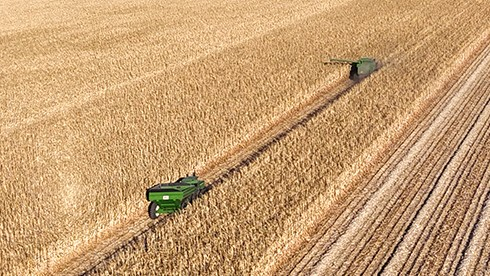As farming practices evolve, many agricultural operations are turning to automated steering to meet efficiency goals while reducing environmental impact. CHCNAV Agriculture offers systems that respond to these needs, helping farmers manage resources more precisely across every field pass.

Reducing Overlaps and Resource Waste
One key benefit of automated steering is its ability to reduce overlaps during tillage, seeding, fertilizing, and spraying. Manual driving often leads to inconsistent row spacing, which results in unnecessary fuel use and repeated chemical application. CHCNAV Agriculture‘s automated systems help maintain straight, accurate rows, ensuring that each area is covered just once. This directly lowers input waste and operational costs, while minimizing chemical exposure to surrounding land.
Saving Fuel with Consistent Passes
Fuel efficiency becomes more attainable when machines follow optimized paths. By using GNSS-guided steering, CHCNAV’s systems reduce the need for corrections and extra passes. Whether a farmer is working a small plot or managing hundreds of hectares, this consistent performance helps reduce diesel consumption across the season. The result is a lower carbon footprint, which supports the broader move toward environmentally responsible agriculture.
Supporting Smarter Equipment Use
Automated steering also extends the lifespan of equipment. When machines operate more efficiently and avoid unnecessary detours or rework, there’s less wear and tear on tractors and implements. CHCNAV Agriculture’s approach enables users to gain more from their investments while reducing the environmental impact of repairs and replacements.
Adaptability for Different Crops and Conditions
CHCNAV Agriculture designs its systems to handle various field layouts and crop types. This flexibility means that more farmers can integrate automated steering into their existing operations without major changes to equipment or workflow. With smoother implementation, sustainable practices become more accessible.
Conclusion
Through automated steering, CHCNAV Agriculture helps reduce fuel use, chemical overapplication, and unnecessary field passes. These improvements contribute to more sustainable farming practices while also offering practical operational benefits.